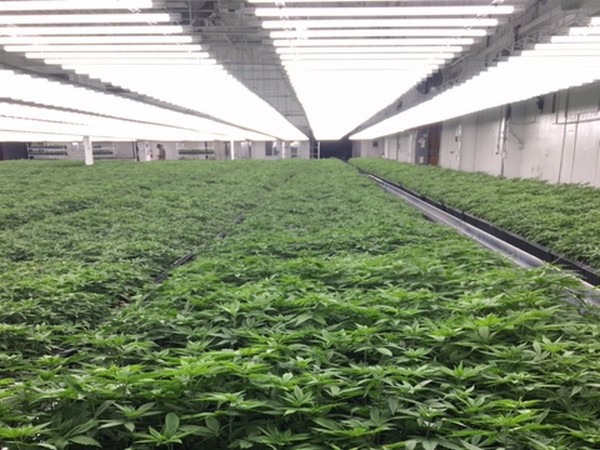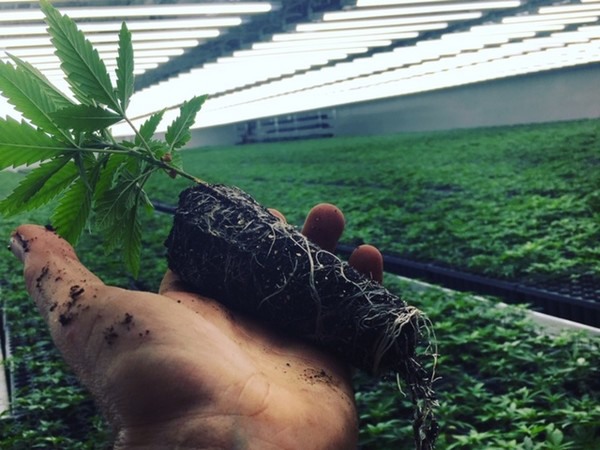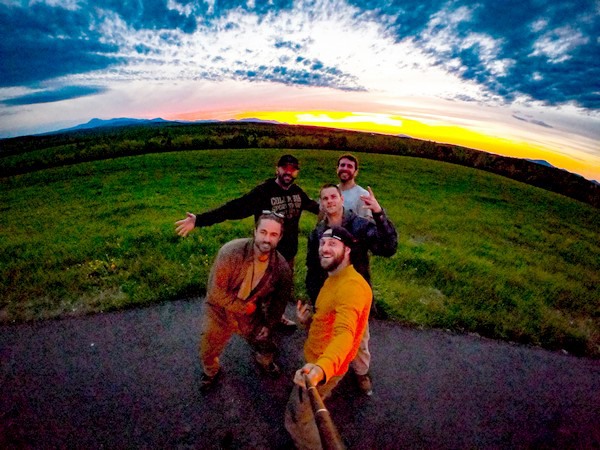Like many other businesses, the cannabis industry is heading toward supply chain segregation, allowing companies that specialize to better serve the market. This is exactly the strategy that Future Farm Technologies is deploying for its operations in the rapidly expanding hemp-derived product market. “Our hemp farming operation is based in the state of Maine,” Tom Barrette, President of Future Farm Technologies, says. “We grow our hemp outdoors, but the cultivation starts in the indoor facility.” Indeed, Tom further explained that Future Farm has a large, technologically sophisticated facility where they start seedlings off. “This is a very important part of our cultivation strategy. Maine is a far northern rural state and winters are very cold. It is therefore of the utmost importance for our plants to be healthy and strong enough to withstand the outside weather conditions.”
Tom points out that such a facility is set up exactly like a high-tech indoor grow. “You need to take into consideration the same things that you would in an indoor pharma-grade cultivation facility. You need a fair amount of space with a particularly good ventilation and airflow. This design allows us to constantly monitor our seedlings and provide them with the best care they need to endure potentially adverse weather conditions. On top of this, we have utilized mold resistant materials so that our seedlings do not have to waste their energy fighting dangerous pathogens. All of this ensures that our high-quality, healthy and strong seedlings are almost guaranteed to thrive in the field.”
 © Future Farm Technologies
© Future Farm Technologies
At the same time, Future Farm is considering compartmentalizing their operation to rely on third party materials and processes. “There are companies that germinate and propagate for you,” Tom explains. “For instance, selecting a company that carries out tissue culture as a propagation method would be beneficial for hemp growers like us, as seedlings started off in that way are even stronger and healthier. We are already taking this approach in connection with processing the biomass from our harvest, where we are working with valued partners for extraction and product manufacturing.” Of course, unlike a number of hemp growers, Future Farm acknowledges the importance of providing compelling COAs. “We always test our plants in the most thorough way possible. I have heard stories of hemp growers not providing a COA when selling their hemp, or maybe even misrepresenting the quality of the crop. That is absolutely wrong, as people seeking these kinds of product do so for health benefits. Thus, it is crucial to consistently provide them with the highest quality possible.”
But that is not the only issue on the hemp side of the industry that Future Farm is addressing in their operation. “We have found that there are a lot of small growers that lack a large-scale experience,” Tom observes. “The key to being successful in the business is to get people who have the correct knowledge, especially when it comes to the technological aspect of it. For instance, you need to know how to use a real large-scale irrigation system. Additionally, since hemp crops need to be tested for the CBD and THC content, it’s extremely important to have people that understand how to grow it properly on a large scale and that can find their way through the different variables of growing.”

Indeed, trying to predict how the harvest will go in terms of cannabinoid content is one of the biggest challenges. “This is where having good people plays an important role,” Tom points out. “In the US, the testing for THC content typically takes place when the plant is still in the field. The auditor comes to the farm and runs the test directly there.” It is also crucial to use genetics and seedlings that would minimize the likelihood of a high THC plant. And this goes back to the seed, and that’s also why tissue culture is very beneficial. If you buy seed from a sketchy supplier, combined with external environmental factors, you run a good chance of having ‘hot’ hemp.”
This challenge is why Future Farm selected Cherry Wine seeds from a trustworthy supplier, but there’s more to it. “We planted 50 acres using Cherry Wine hemp seeds in 2018,” says Tom. “With that, we got a huge number of seeds, which are what we have been planting this year on our 100 acres.” According to Tom, using Future Farm’s own seeds ensured that there would be high quality plants. “Relying on our own seeds has proved to be fantastic for us,” he says. “That allowed us to know what we were getting. This is something you are never sure of within the hemp space, because the whole breeding of strains is not regulated and thus it is really difficult to find consistently high-quality seeds.”

Tom believes that the extreme care and professionalism Future Farm is putting into growing is one of the key elements for the success of the hemp industry as a whole. “As the regulations for this sector get sharper, you will see a lot of small companies being excluded from the game,” he says. “At the same time, supply segregation will take place, and a lot of companies will leave part of their processes to third parties. However, the keyword for doing this on a contract basis is to use cGMP standards. This aspect will eliminate a lot of small or unsophisticated manufacturers, with only a few companies making very high quality products. We plan to be among those companies as well as continuing to be sure to make those products from only the highest quality hemp.”
For more information: Future Farm Technologies
Future Farm Technologies
U.S.
368 Washington Street
Suite 206
Dedham, MA 02026
Canada
Suite 501 – 543 Granville Street
Vancouver, BC V6C 1X8
info@futurefarmtech.com
futurefarmtech.com
